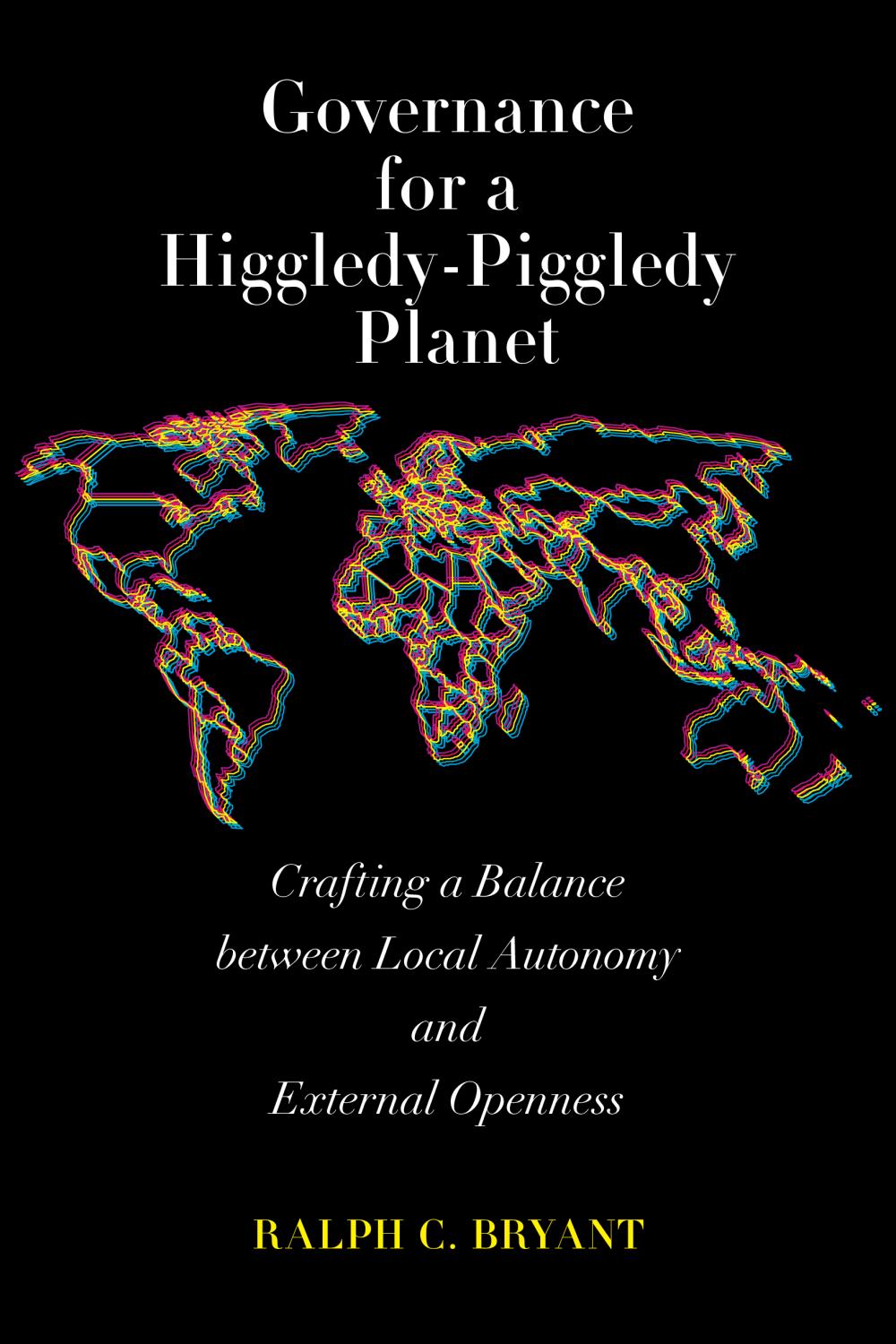The world’s governing structures are higgledy-piggledy: disorderly, heads and tails in any or every direction. Such disorder fosters deficient governance. Decisions by noncooperating nations can generate damaging crossborder outcomes. Muddles destabilize mutual well-being.
Public debate is often mired in superficial arguments about “globalization.” This insightful book by economist Ralph C. Bryant instead emphasizes that the world’s nations need to craft better middle-ground compromises to improve governance and manage increasing integration. Individual nations, Bryant argues, should fashion a balance between local autonomy and external openness, avoiding the extremes of rigid localism and unfettered openness. And nations need to act together collectively. Cooperative governance can encourage orderliness that mitigates disarray undermining mutual goals.
The global challenge of the coronavirus pandemic is a vivid reminder that international cooperation is becoming progressively more essential. Do nations and their leaders have sufficient foresight to use borders not as barriers but as catalysts for international cooperation? Could national migration policies find sustainable middle ground between the unrealistic extreme of unfettered freedom for people to cross borders and the inhumane exclusion of foreign refugees? Could augmented cross-border cooperation mitigate dangers from recurring financial instability? Could the world community foster collective actions to reduce the severe risks of global climate change? The answer to such questions can and should be yes. Wiser cross-border collective action nurtures a mutually supportive order offsetting the threats of disorder that may otherwise prevail. A healthy evolution of our planet requires—requires!—more orderly national governance and more ambitious cross-border cooperation.
Ralph Bryant has been a Senior Fellow in the Economic Studies program of the Brookings Institution since 1976. His primary fields of expertise are international economics, monetary economics, and open-economy macroeconomics. Prior to joining Brookings, he was Director of the Division of International Finance at the Federal Reserve Board and the international economist for the Federal Reserve’s Federal Open Market Committee.
Bryant’s recent books are Turbulent Waters: Cross-Border Finance and International Governance (Brookings, June 2003) and Crisis Prevention and Prosperity Management for the World Economy (Brookings, June 2004). Recent writings include papers on governance and quota reform for the international financial institutions.


